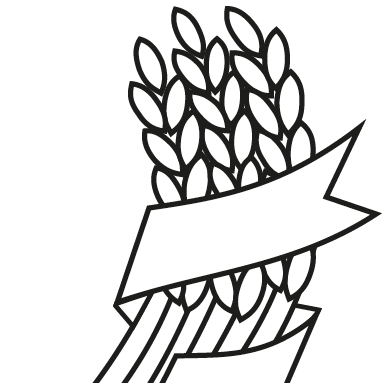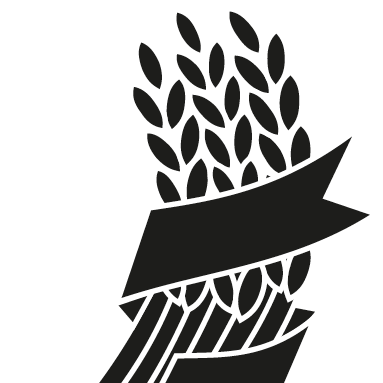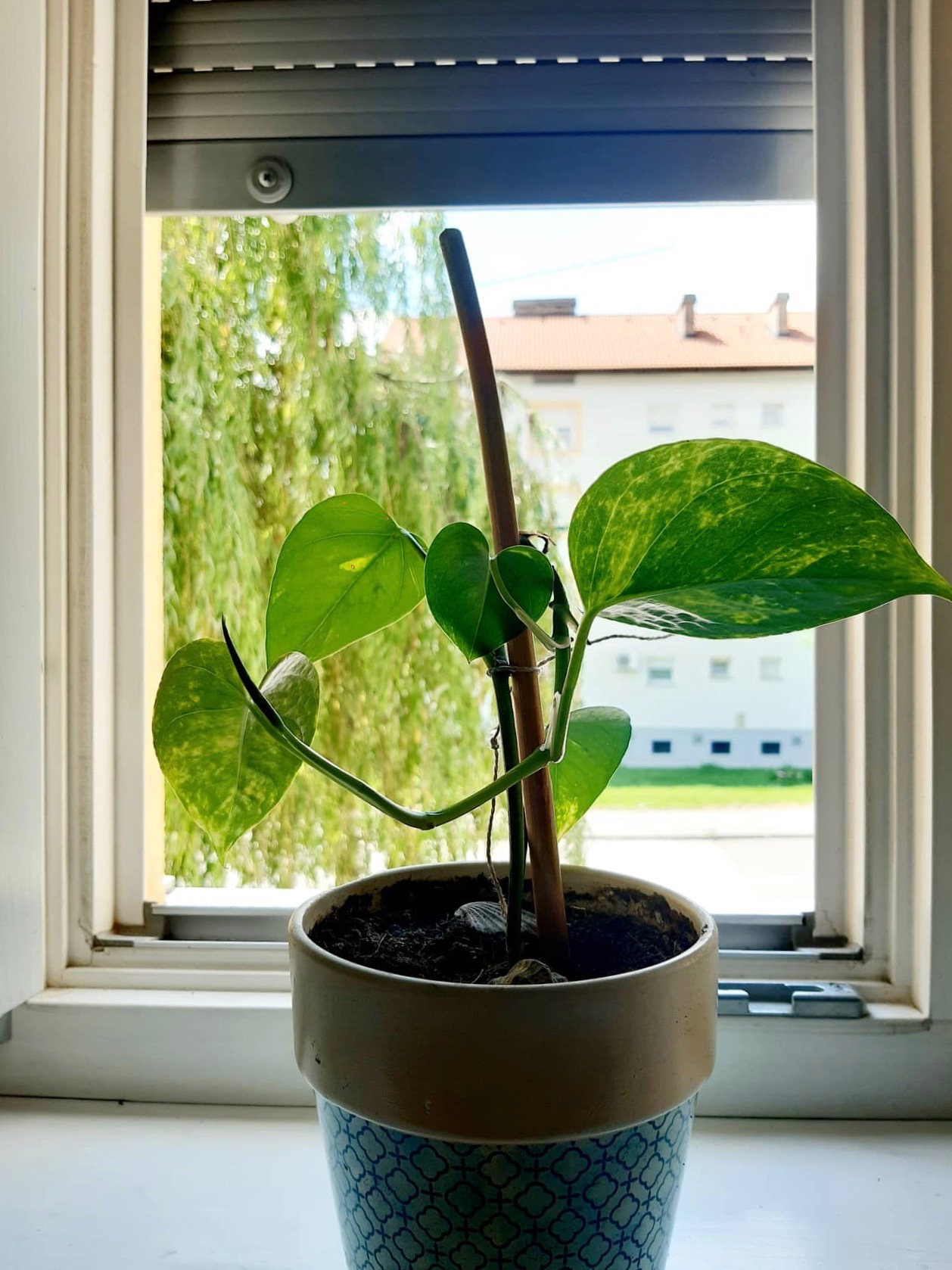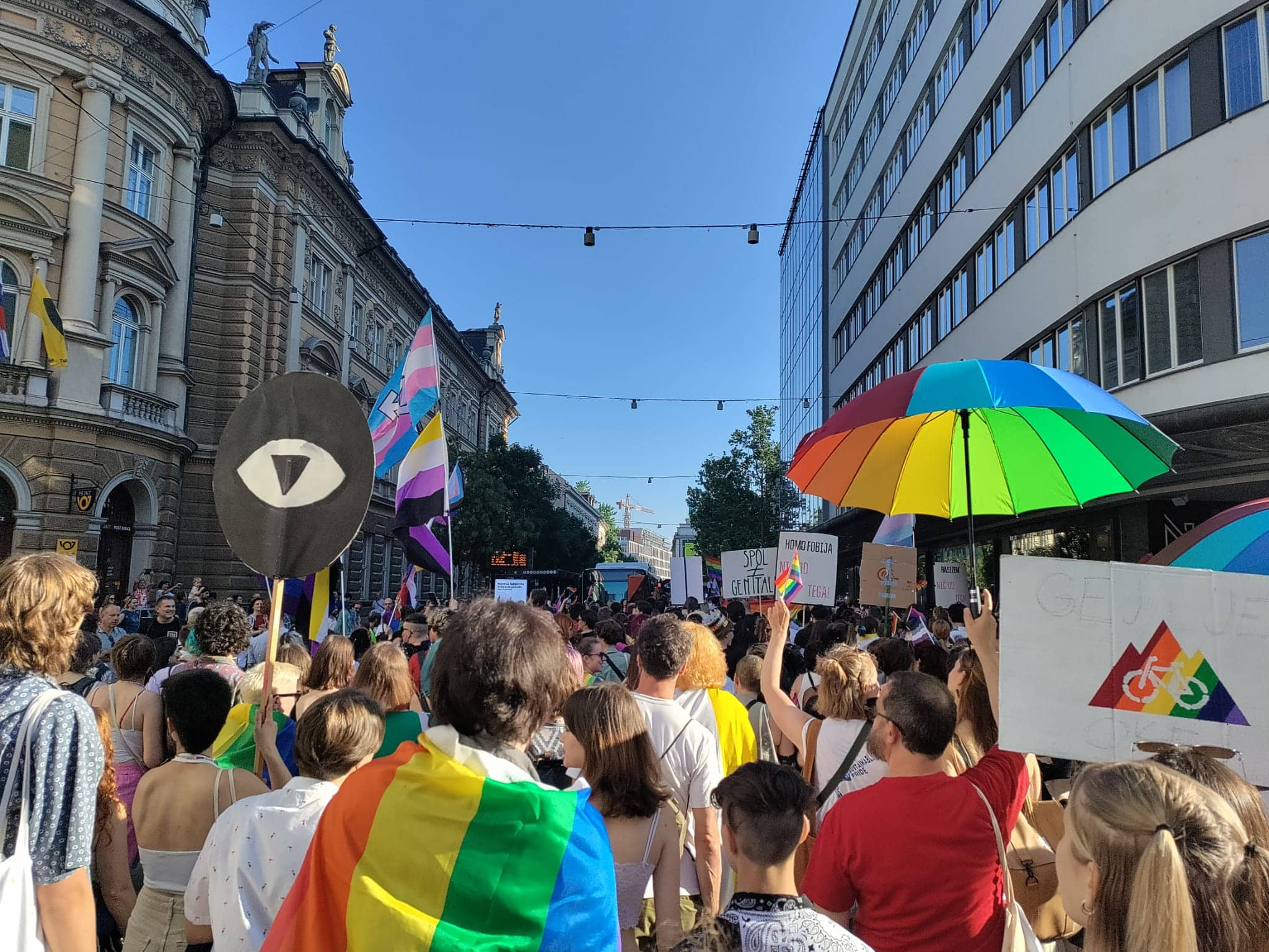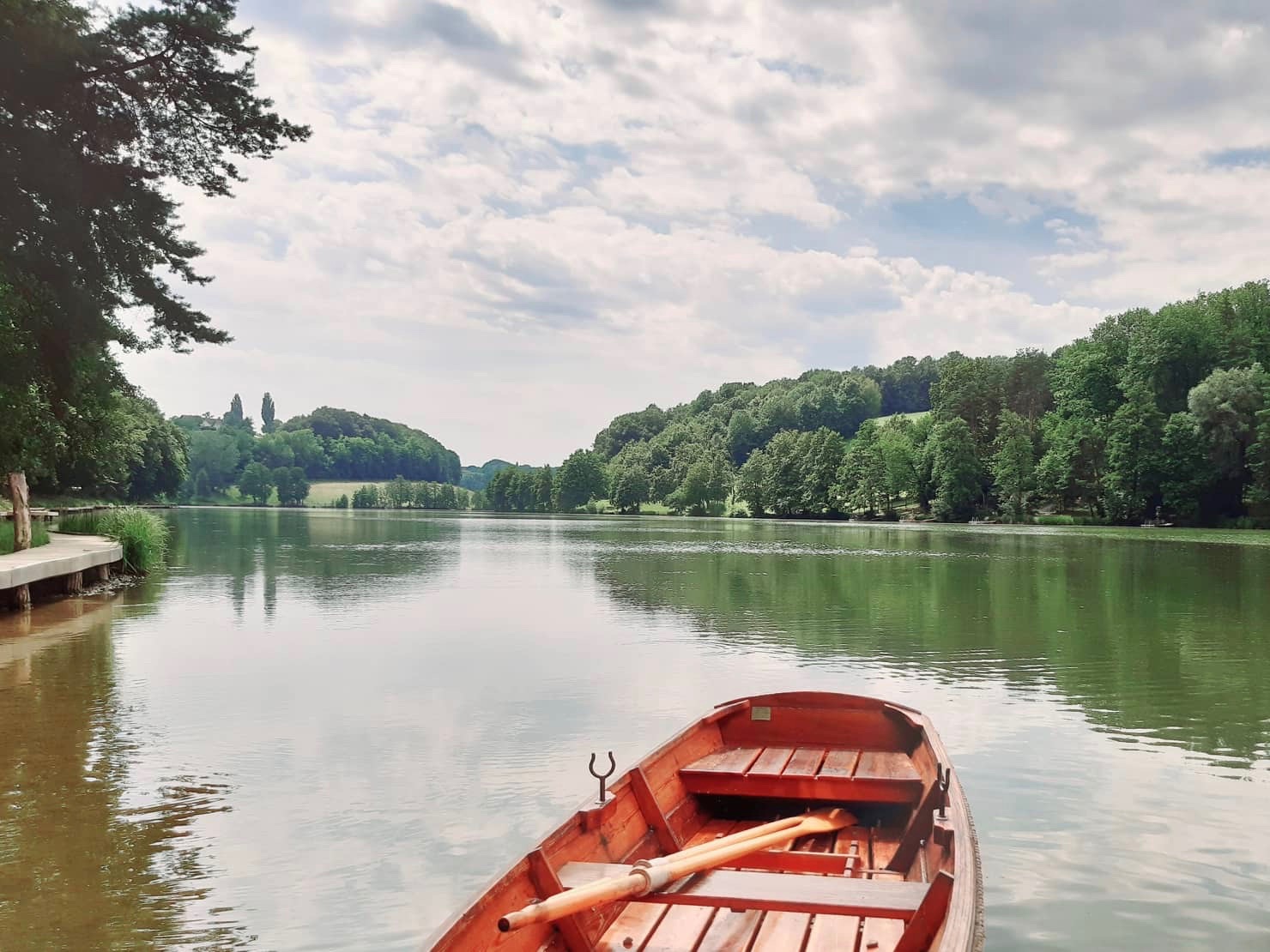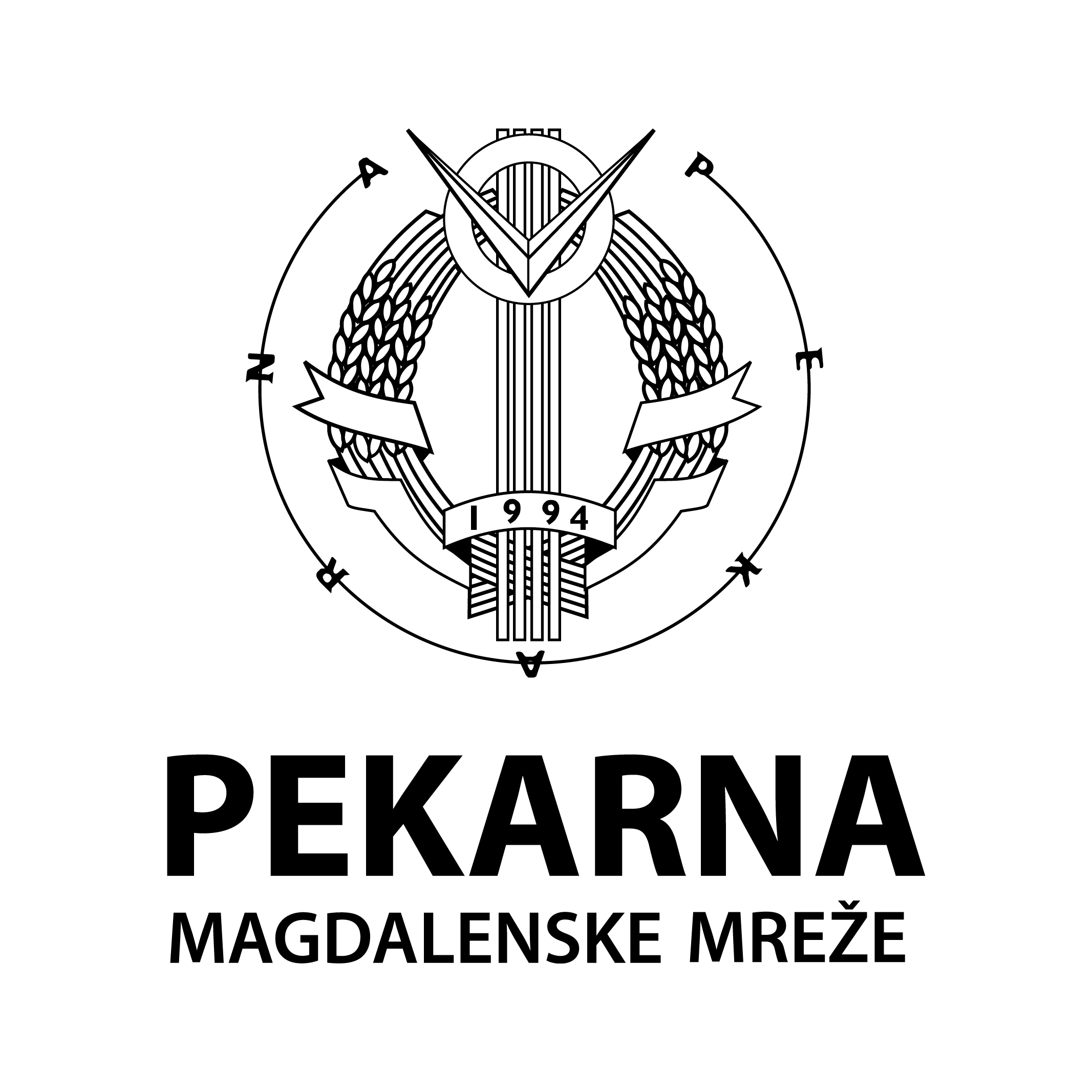ESE blog
How to ESC(ape) in Maribor: Alternative Culture, Spaces and Experiences
As people are not perfectly objective species (or objective at all), we see spaces with different lenses and experience them subjectively. Thus, the following text is a view of one person who will try to summarize his personal experience of the first three months living as a European Solidarity Corps (ESC) volunteer in Slovenia, specifically Maribor, and volunteering for Pekarna Magdalenske Mreže.
First impression of Slovenia, compared to Bosnia and Herzegovina (my home country), is that is generally more organized, a lot cleaner and a bit quieter. Compared to some similar cities in terms of size in Bosnia, Maribor is better organized in terms traffic (for cars and especially bicycles), parking spaces, recycling, and richer in terms of greenery, trees and parks, alternative spaces, and culture. For a relatively small city, Maribor offers a lot of cultural content – exhibitions, concerts, performances, plays. Because there are more such opportunities, I have been more exposed and involved in culture, and because of PMM, I have also been able to experience and see the alternative side of things in different roles. For example, during Artists for Art Education, a two-week project with Croatian highschoolers, I have created art, been involved in setting up the exhibition and worked in the Vetrinjski gallery where the artwork was exhibited.
PMM offers an impressive amount of diverse content for its users, ranging from concerts, exhibitions and workshops, to lectures, events and discussions. Just to give you a feel how this is, in one week there were a set of critical lectures on conspiracy theories, a poetry book promotion by a Palestinian poet living in Maribor for years, workshop and discussion for African Day, and then an event where young people were given a platform to draw attention on the problems they are facing in Slovenia as a part of the preparation for the Resolution on National Program for Youth. As a part of the Volunteering festival there was a talk with Anica Mikuš Kos, a legendary philanthropist and mental health specialist who dedicated her life to helping the youth, volunteering and general well-being of the unfortunate. After that, together with my ESC volunteer colleagues and our coordinator, we organized two events (of which I am very proud of) linking mental health of youth and volunteering. The first was a discussion with a psychologist Nina Babič, and the second was a poetry workshop with Vesna Liponik. Through Ways of Seeing program, I was able to learn more about film and photo editing, graphic design and stop-motion animation, which I enjoyed thoroughly. For the Day of the Planet Earth, we helped high school volunteers organize an event consisting of concerts and discussions with experts in climate change. There was also a plant and seed exchange, where I got the beauty, which you can admire bellow.
When I got her, she was but a small two-leaf sapling, and now she is rapidly growing into a full-on plant. I am super proud, because not only she is alive, she is also thriving. Why is this important to me? Most of the plants I had before only stagnated or deteriorated (mostly because I was giving them too much water or not enough), and it seems that I had to come to Maribor and meet people who will show me how to take care of plants. There is definitely some symbolism in there, and some parallels that can be drawn to my experience here. It seems also, that I am slowly managing to live a healthier lifestyle - I have been cooking more than usual, biking way more than usual, and have been fairly often in nature. I have seen the Slovenian coast, many lakes, conquered Boč, hiked on Pohorje, and went to Ljubljana for Pride, among other things.
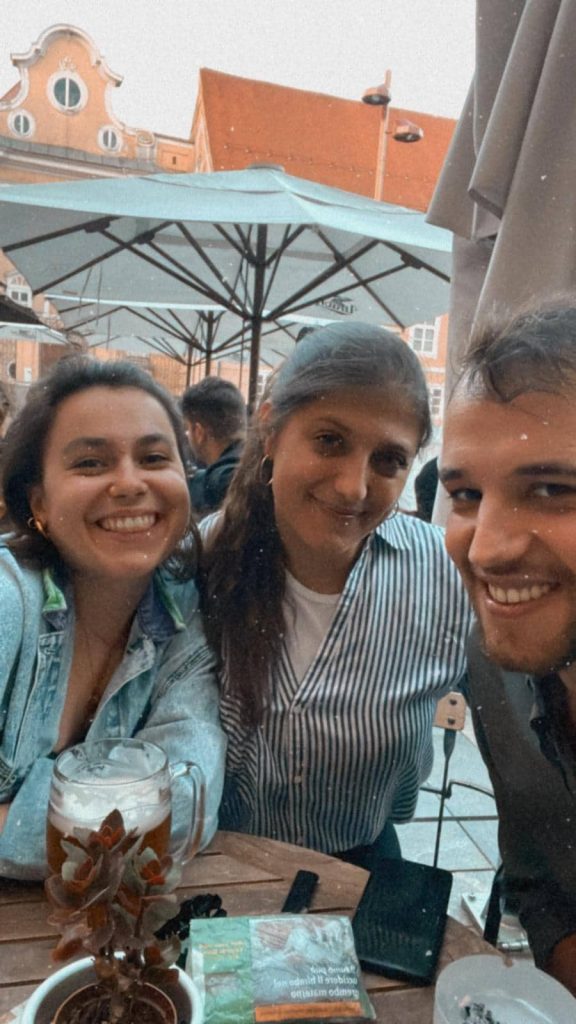
I have meet new and interesting people, done things I haven’t done before, and came out of my comfort zone more than few times. This experience has also given me the opportunity to understand the place I am in and the people here better, and to be exposed to alternative spaces such as Pekarna. As PMM and the whole KC Pekarna is a squat, and a fairly long-lived one, celebrating respectively, 25th and 28th anniversary, there is an important connection to the actual space. However, its position is always in a precarious state, for simple facts that it does not make profit (or the profit made is negligible), does not organize mainstream cultural events, and is a place of gathering of the people on the margins, the weirdoes, the dreamers, or simply, “others”. And, in capitalism, especially in its current neo-liberal state, where any space in the city is measured by the possible profit made from square meters, Pekarna as an alternative space in the city and its rejection of profit is a thorn in the eye of the powerful. Losing more and more space throughout the years, getting relocated and pushed out from the city center, is the sad reality of places such as this.
After using and revitalizing the gallery K-18 for twelve years (photo above), PMM was pushed out for some nonsensical reason, and had to relocate form the easily visible and recognizable space, to another one, albeit close, but definitely less visible. There seems to be no sense of security in the alternative cultural sector, while the ability to use certain space depends on the whims of the ones in control.
However, the struggle is still on, and as long as there are places like Pekarna, they will offer an alternative way of looking at things, and the alternative way of learning. By learning more about the place we inhabit, we learn more about its people, and finally, we learn more about ourselves. I am glad that I made the decision to come to Maribor, and glad that Pekarna Magdalenske Mreže and European Solidarity Corps gave me the opportunity to have this experience and ESC(ape) the clutches of apathy and passivity. ‘Till next time.
